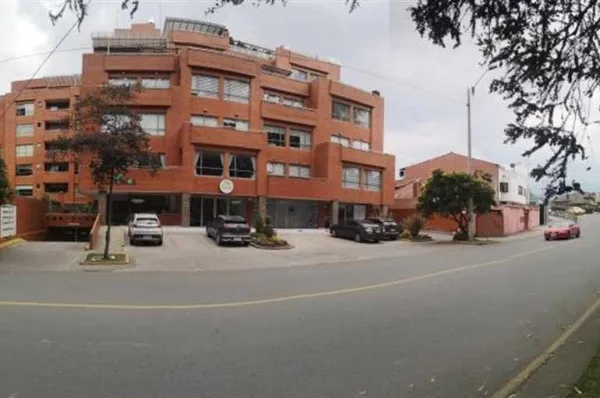Targeted fuel subsidy talks continue; Lasso expects relief from China oil-debt negotiation; Volcano drills recommended; Expat considers run for mayor
Negotiators for the Confederation of Indigenous Nationalities say “progress is being made” in talks with the government to provide targeted subsidies for gasoline and diesel fuel. “We are optimistic about what we have accomplished but a number of issues remain to be resolved,” says Conaie’s Patricio Meza. “The process will take longer than we first thought and require more meetings, but we believe we can reach solutions agreeable to both parties.”

Geologists are concerned about increasing seismic activity at the Chiles Cerro Negro volcano complex near the Colombian border. They are recommending that local governments conduct evacuation drills.
According to the moderators for the negotiations, the Ecuadorian Catholic Episcopal Conference, the unresolved issues are “details” of how the subsidy program will be applied. “Both sides agree that the cost benefits must go to those in need as well as to the agriculture and transport economic sectors,” says Luis Cabrera of the Episcopal Conference. “Among the issues to be resolved is how to identify those people and companies that provide essential services so they can receive the benefit. Everyone agrees that people who can afford to pay market price for fuels should not be subsidized.”
Although the talks that ended the 18-day indigenous strike in June cover 10 topics, Cabrera says that the fuel subsidy is the most important to both indigenous groups and the government.
Lasso expects good news from China oil talks
President Guillermo Lasso says he expects to announce “good news very soon” from debt negotiations with China. Specifically, Ecuador hopes to renegotiate the value of oil deliveries to China in payment of long-term debt.
“The talks are going well and the Chinese negotiators are sympathetic to the fact Ecuador is paying a substantial penalty due to the bad debt repayment deal negotiated by previous governments,” Lasso said.
According to Ítalo Cedeño, manager of Petroecuador, Ecuador receives $14 to $19 less per barrel as a result of the oil-for-debt deal signed in 2014 by former president Rafael Correa. “Without changes, the country would lose $4 to $6 billion over the course of debt payments,” he says. “If we can sell the oil at international market prices, the gain would amount to more than a billion dollars a year.”
Cedeño added that Ecuadorian oil delivered to China for debt payment is resold to U.S. oil companies and refined in Texas and Louisiana refineries. “The oil that China needs domestically is purchased from Russia.”
Vocano drills recommended near Chiles Cerro Negro volcano
Following Monday’s 5.2 magnitude earthquake in Carchi Province, the Geophysical Institute is recommending that residents near the Chiles Cerro Negro volcano complex conduct safety and evacuation drills for the possibility of a volcanic eruption.
Monday’s earthquake and more than 20 aftershocks occurred near the volcano complex, located just south of the Colombian border. “This week’s earthquakes appear to be part of a swarm of earthquakes of increasing frequency occurring near the complex,” the institute said. “Since May 27, 17,738 earthquakes have been recorded in the region. The seismic sources, including those of Monday’s and Tuesday’s activity, are concentrated below the summit of the Chiles volcano.”
The institute reports that it has observed a rising pool of magma beneath Chiles Cerro Negro in recent months. “We do not believe an eruption is imminent but one could come in the coming months or years. As a precaution, we suggest that local governments conduct drills on a routine bases.”
The Chiles Cerro Negro complex reaches at height of 4,698 meters, or 15,413 feet. Its last eruption was in 1936.
Expat considers run for mayor
Italian expat Luca Pallanca says he is thinking of running for mayor of Cuenca. The owner of a pizza restaurant in the historic district, Pallanca is best known for providing food, clothing and school supplies to small communities in Azuay Province.
Most recently, he helped negotiate the delivery of medical oxygen and medicine to Cuenca that had been detained at a roadblock in Molleturo during the indigenous strike. He was criticized by current Cuenca Mayor Pedro Palacio for intervening “without authorization and outside of official channels” in talks with strikers. He responded in a radio interview: “This is the problem. Official channels don’t work for the people.”
Among others considering running for mayor are Palacios, Marcelo Cabrera, Dora Ordóñez, Mario Castro, Xavier Enderica, Fernando Cordero, Yaku Pérez, Christian Zamora, Paúl Carrasco and Jefferson Pérez. Cabrera is a two-time mayor, defeated by Palacios in the 2019 election. Yaku Pérez is a former Azuay Province prefect and presidential candidate in 2021. Jefferson Pérez is Ecuador’s first Olympic gold medalist.
The deadline for entering the mayoral race is August 5. The election is in February 2023.


















